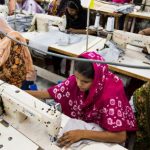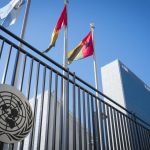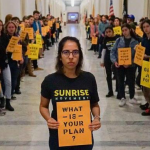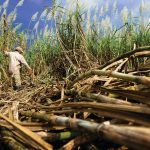
By Nicola Woodroffe, Perrine Toledano and Jeff Geipel
August 14, 2019
Extractive projects can generate substantial revenues for host countries, and discoveries often bring hopes of jobs, development and newfound wealth. But they also generate a range of negative environmental and social effects, which can have direct and significant economic implications. At the Extractive Industries Transparency Initiative (EITI) global conference in Paris, the Natural Resource Governance Institute (NRGI), the Columbia Center on Sustainable Investment (CCSI) and the Mining Shared Value (MSV) initiative of Engineers Without Borders held an event that delved into how we can better measure, value and report on the non-fiscal impacts of extraction, alongside fiscal impacts.

By Paolo Natali, Suzanne Greene, and Perrine Toledano
August 14, 2019
The embedded carbon content of any product is largely unknown to the final consumer. Very few consumers are aware of the carbon that has been generated in the production and delivery of products and, as a consequence, virtually nobody takes action to abate these emissions. The MIT Sustainable Supply Chains initiative, Columbia Center for Sustainable Investment, and Rocky Mountain Institute’s Materials initiative have formed a working group to engage minerals producers, end users, investors, and other stakeholders interested in carbon accounting.

By Rumbidzai Maweni
July 10, 2019
In June 2019, the Business and Human Rights Arbitration Working Group, a private group of international lawyers and academics, published the Draft Arbitration Rules on Business and Human Rights, an initiative which proposes to create an international private judicial dispute resolution avenue for parties involved in business and human rights disputes. This post reviews the proposal in light of recent attempts to address business and human rights in the context of international arbitration with a specific focus on the Bangladesh Accord arbitrations.

In this alumni profile, Mary Ndaro, Coordinator for Ardhi Yetu program at CARE International, Tanzania, and a 2017 Executive Training alumnus, addresses women’s land rights, capacity building for civil society organizations, and grassroots engagement around land policies and investments.

By Lise Johnson
May 3, 2019
From April 1-5, 2019, 106 governments met under the auspices of the United Nations Commission on International Trade Law (UNCITRAL) in New York to discuss how to reform the controversial system of investor-state dispute settlement (ISDS) presently embedded in thousands of international investment treaties. Intergovernmental organizations, development banks, and dozens of other organizations from around the world participated as official observers. This blog discusses five key takeaways.

By Nicolas Maennling
April 15, 2019
Ørsted, formerly Danish Oil and Natural Gas Energy, is one of few energy companies to transition primarily to renewable energy from fossil fuels. CCSI had the pleasure to talk with Jakob Askou Bøss, head of strategy and communication at Ørsted, about lessons learned from Ørsted’s transition, and their implications for other energy companies hoping to succeed in a decarbonized economy.

By Motoko Aizawa and Brooke Guven
March 29, 2019
The United Nations Commission on International Trade Law (UNCITRAL) is expected to adopt in July an updated Legislative Guide on Public-Private Partnerships (PPPs). Absent a fundamental reorientation of the most recently available draft, the UN stands to miss a huge opportunity to help countries achieve Agenda 2030 and the Sustainable Development Goals (SDGs). Here is why.

By Nadra Rahman
March 22, 2019
To give rural communities more leverage in the decisions that affect their lands, Liberian NGO Green Advocates has been using OpenLandContracts.org to deepen understanding of land contracts and empower rights holders to participate in decision-making.

By Nathan Lobel
February 26, 2019
What the Green New Deal gets that the carbon tax misses: embedded in political realities, the seemingly first-best option can become at best insufficient to achieve its original policy objectives, and at worst a costly distraction from other more viable alternatives.

By Ayesha Audu
December 18, 2018
A recent project by the Business & Human Rights Resource Center shows how OpenLandContracts.org can be used to strengthen advocacy around corporate accountability and good governance of natural resources.













